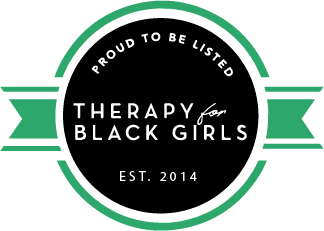
Anyone Care About Black Girl Tears? 👀
Dr. Claudine Gay’s resignation from Harvard is the result of the latest in a growing string of attacks against the psychological safety, careers, and overall wellbeing of professional Black women; and I have something to say about it! SoftLife.MD is a trusted source for evidence-based and informed mental health and wellness education, that caters to the needs and interests of professional women of color. The term ‘black girl tears’ is a play on the more popularly known term , ‘white girl tears’, a colloquial term that speaks to the pattern of support, outrage, empathy, and in some cases, vigilante justice, that the tears of white women have historically evoked. My use of ‘black girl tears’ appallingly speaks of quite the opposite history, i.e. a glaring lack of support, outrage, empathy, and justice in response to the tears of Black women…talk about disparate responses for something as human as tears. I was reminded of the silence and silencing that Black girl tears evoke when I first learned about what took place between Dr. Claudine Gay and Harvard. I delayed processing and speaking about it because I needed to prioritize my own self care and desire to start the year off joyful, inspired, and hopeful. Mission accomplished, here goes… It’s as though the powers that be have decided to wage an all out war against high achieving Black women. I suppose by some folks’ standards, too many of us (Black women) have apparently gotten ‘too big for our britches’. The backlash is undeniable. The pattern of discrimination against professional Black women, across industries, is glaring. Are we going to collectively ignore this? Something undeniable is happening here, and it is larger than any one Black professional woman whose employer has decided they don’t like her anymore. In 1962, Malcolm X said, “The most unprotected person in America is the Black Woman.” My God, why is this still so true?? Here’s the plain truth: Black women’s character, integrity, affability, employability, femininity, appearance, and just overall way of being are being attacked by the powers that be. So often workplace complaints about Black women are vague, amorphous, and have no actionable steps to take. Rarely is it an issue with Black women’s character, work ethic, or work product, yet this does not their attacks. I have seen Black professional women clients, across industries from academia to tech, entering treatment at increasing and alarming rates, for severe stress and even trauma stemming from the discrimination and attacks that they are forced to endure as they ‘rise up in ranks’ in the workplace. Workplace related depression and stress and professional burnout are the leading conditions I treat in my practice. It seems that people are ok with Black women when we are not in positions of power, but the war against us is on as soon as we advance. The staggering rates of professional burnout amongst professional Black women appear to be directly correlated to backlash against our successes. Why is our success so triggering? What is most shameful is how often others sit silently by and allow this to happen. Throughout time, Black women have been the first in line to assume the role of ally, defender, and advocate for those within and outside our immediate communities. Perhaps our fatal flaw is our penchant for fighting for the underdog, the most vulnerable and oppressed amongst us. I suspect that it is our fearless commitment to justice and moral integrity that keeps us in the crosshairs of the powers that be. Historically, Black women have been the behind the scenes backbone and vital work force behind so many impactful movements both within and outside our community. We are the ones spending every waking free hour volunteering for churches and civic causes, often at the expense of our own health and wellbeing. We are the ones taking on most of the caregiver roles for our immediate and extended families. We are the ones who speak up in the boardrooms to express the concerns that most have but lack to courage to voice, often at the expense of our own affability and careers. We are the ones who loyally and consistently pick up the slack. What is clear is that professional Black women lack psychological safety in our workplaces and in our communities. Too often we are unprotected and undefended. I have three questions. Call to Action 💚You are NOT alone in this. 💚Remain encouraged. 💚Seek help from those equipped to help 💚Acknowledge and then release feelings of fear, despair, inadequacy, and rejection. 💚You are valuable, lovable, and likable! 💚Recognize that you are human, deserving of empathy and the grace to make mistakes (like everyone else) and not always have to perform at 100%. 💚You no longer have to prove or perform your worth; you never should have been groomed to believe this narrative in the first place. 💚Ask for help from people who are trustworthy and equipped to help. I KNOW this can be scary for us. Support one another when you have the bandwidth to do so. 💚Prioritize your own rest, peace, joy, self love, self compassion, and self care ABOVE ALL. If we don’t, who will??? The time has never been more critical. 💚Consider reaching out to trusted mental health providers if you are in need of emotional support. I specialize in helping professional women of color overcome high achieving anxiety, depression, and professional burnout. Reach out if I can be of service. More details can be found at DrHypolite.com. 💚Be well and encouraged, lovelies! 💚 Iman Hypolite, M.D. (aka SoftLife MD)



